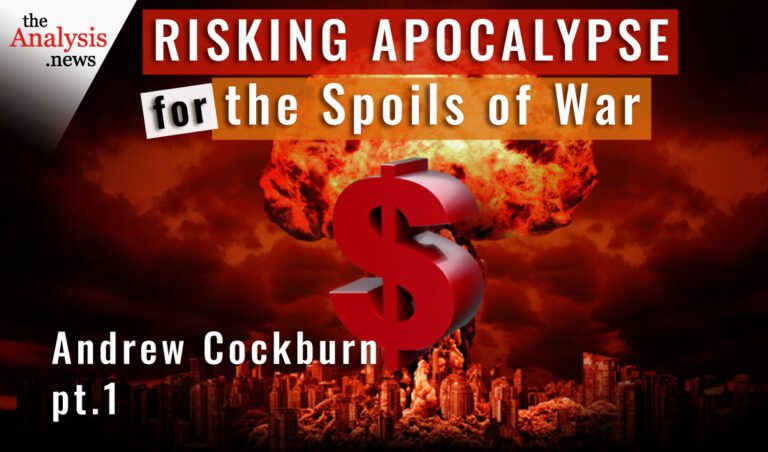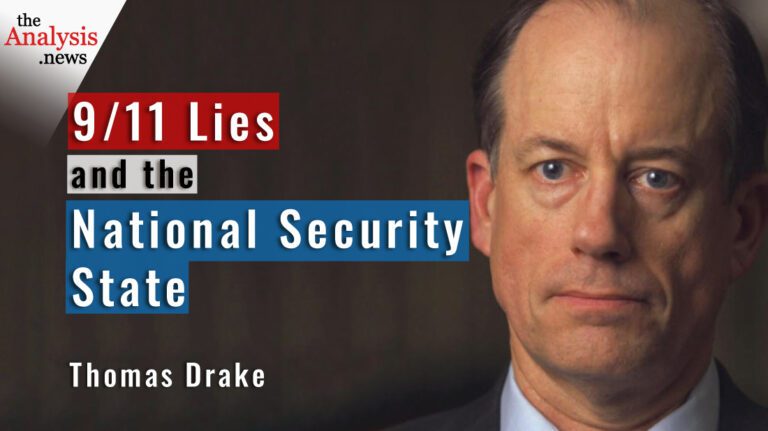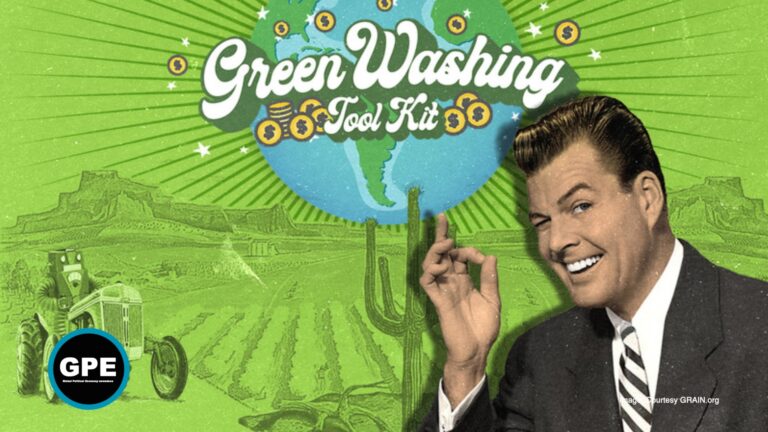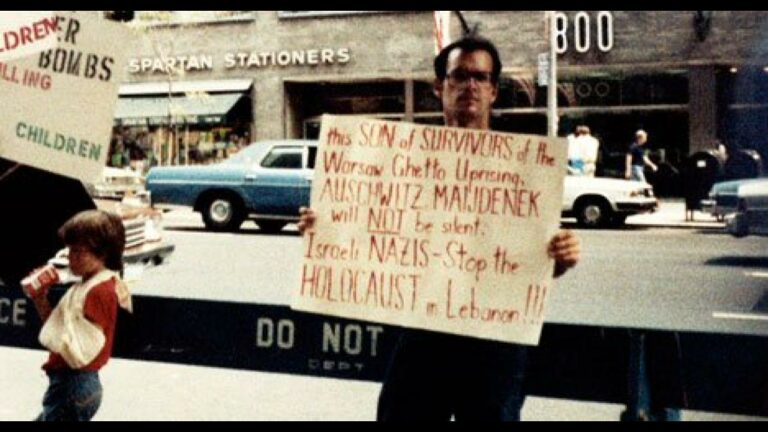This interview was originally published May 29, 2015. On Reality Asserts Itself, Mr. Appy says that presidents Kennedy and Johnson pursued the Vietnam war largely to prove the U.S., and themselves personally, had the “courage” to wage war.
PAUL JAY, SENIOR EDITOR, TRNN: Welcome back to Reality Asserts Itself on The Real News Network. I’m Paul Jay. In his book American Reckoning: The Vietnam War and American Identity, Christian Appy writes: the need to demonstrate presidential balls has been an under-acknowledged but enduring staple of American foreign policy. Aggressive masculinity shaped American Cold War policy and still does. Deep-seated ideas about gender and sexuality cannot be dismissed as mere talk–they have explanatory value. U.S. policy in Vietnam was driven by men who were intensely concerned about demonstrating their own and the nation’s toughness. As every other justification of the war grew threadbare, it became increasingly important to appear firm. Now joining us in the studio is Christian Appy. Thanks for joining us again.
CHRISTIAN G. APPY, AUTHOR, AMERICAN RECKONING: You’re welcome.
JAY: So one more time, his latest book is American Reckoning: The Vietnam War and Our National Identity. And Christian teaches history at the University of Massachusetts Amherst. So this has always seemed to me, this need to develop, portray firmness and strength and so on, you know, it’s akin to, like, a loan shark, and it’s actually a lot akin to a loan shark, given how much of American commerce is based on lending people money–and I shouldn’t say people; lending countries money, and assuming they’re going to pay back. And for most loan sharks, you’ve got to break some knees once in a while to make sure people pay you the exorbitant interest you’re trying to collect. Talk about this need to projected toughness, and start with Kennedy in Vietnam.
APPY: Well, Kennedy early on in his presidency suffered a couple of real blows to his reputation, most obviously when he supported the–orchestrated the invasion of Cuba in an effort to overthrow Castro at the Bay of Pigs. And it was a debacle, and it failed. Every one of the Cuban exiles that was trained to carry out the operation was either killed or captured. And Kennedy was forced to actually pay ransom to get the prisoners back. So what was to be a secret operation was quickly exposed, and it was felt that he felt it as deeply humiliating. And then later that same year he met for the first time with Khrushchev, and Khrushchev effectively kind of bullied him, and once again Kennedy felt that he had not demonstrated his presidential gravitas and was already beginning to look at foreign-policy interventions.
JAY: Can I just add one thing?
APPY: Sure. Yeah.
JAY: And internally taking tremendous flack from some sections of the military and certainly the whole conservative /pʌndərˈæpɨs/–can’t say it, but you know what I mean–about being weak.
APPY: Yes.
JAY: I mean, why didn’t he go in with a full-fledged invasion of Cuba?
APPY: Right. That, and he was already beginning to sort of move toward a neutralist solution to the communist insurgency in Laos, so he was beginning to think that maybe Vietnam would be the place to assert American credibility and power. But before that really began to develop, we had the Cuban missile crisis, and this for him was a great boost to his reputation and to his reputation for strength and steely resolve.
JAY: Again, really quickly–some of our viewers don’t know that what that is.
APPY: Yeah. Well, the United States discovered, through U-2 reconnaissance photographs, that the Soviet Union–
JAY: That was the spy plane.
APPY: –the spy plane–that the Soviet Union was beginning to install medium-range nuclear missiles in Cuba–in response, actually, to the U.S.-backed invasion. They were put there as a kind of deterrent, really defensive, though of course all nuclear weapons are almost by definition dangerous.
JAY: And also there were nuclear–United States had weapons in Turkey which were awfully close to Russia.
APPY: We had–exactly. And indeed you speak to the exact resolution of the missile crisis. Kennedy made clear on television that it would not be tolerated. Interestingly enough, he couldn’t tolerate it because he had made a speech a couple of months earlier saying that if offensive weapons were put on Cuba by the Soviet Union, he would not allow that. And once it happened, he asked some advisers, does this really change the balance of power in the world? And Kennedy said–McNamara said, no–this is Secretary of Defense McNamara. And Kennedy agreed. He said, I wish I had never said that. I wish I had never drawn that line.
JAY: Yeah, ’cause what could they do with them?
APPY: Yeah. So he had–but now he felt he had to do something. And what he did, thankfully, was to be a little patient and to say no to those of his advisers that immediately wanted to launch airstrikes and take a more aggressive response. They negotiated a settlement. So it really was diplomacy, not bluster or militarism, that solved the crisis. They were willing to say to the Soviets, okay, we will publicly promise never to invade Cuba, and privately we’ll agree to remove our missiles from Turkey that are threatening very close to your borders. But the narrative that they wanted to go out to the public was a tougher narrative, that we stared them eyeball to eyeball and the other fellow blinked–that was attributed to–.
JAY: Yeah, ’cause America set up all these military ships, Navy ships as a blockade around Cuba.
APPY: Yes, the sort of the–yes, the quarantine. And Kennedy even went so far as to suggest that Adlai Stevenson, who was representing us at the United Nations, had wanted to sell us out, had wanted to, quote-unquote, Munich, because he had advised that we remove our missiles from Turkey to solve the crisis. And that’s exactly what did solve the crisis. But Kennedy didn’t want anybody to know that, so he actually threw Stephenson under the bus as a weakling. Anyway, privately he told people that–Kennedy bragged in private to friends that he had cut off Khrushchev’s balls. So that really is deeply embedded in the American foreign policy of the period. And it becomes more important, as I write, as the other justifications for the war are no longer believed even by the policymakers. By 1965 or 1966, I believe, Johnson was not convinced that the war in Vietnam posed any threat to national security.
JAY: I want to get to Johnson, but I just want to stay on Kennedy for a minute.
APPY: Okay. Sure.
JAY: You know, there’s a lot of debate about the Kennedy assassination. That’s whether or not he was really going to pursue Vietnam or not. What’s your take?
APPY: Well, I waffle on this issue. As I tell students, it’s hard enough as a historian to figure out what actually happens, and nearly impossible to figure out what might’ve happened if x or y or z had been different. So really these are interesting speculations, but really impossible to nail down. The truth is there’s documentary evidence that would support both positions. I mean, those who would like to believe that Kennedy would have pulled us out of Vietnam can cite documents where they’re talking about withdrawing 1,000 troops at a time and slowly drawing down our presence. But Kennedy was pretty clear in a lot of that planning that those withdrawals had to be contingent on success. And there was some hope at the time that maybe success was coming, but it needs to be remembered that Kennedy, although he never put more than 16,000 troops into Vietnam, which seems quite a small number when you compare it to the 540,000 that finally ended up there under Johnson, those 16,000 troops had already put into place many brutal practices that would only get expanded. We were–by 1962 we were already using chemical defoliants on South Vietnam. We were using napalm. We were engaged in aerial bombing of South Vietnam, the very land we claimed to be defending. And we were already beginning the forced relocation of people from the rural countryside into what were then called strategic hamlets.
JAY: Concentration camps.
APPY: Effectively concentration camps. So all of that had begun. And even on the last day of his life, he gave a speech that morning–or maybe it was the night before; I think it was that morning–in which he reaffirmed the necessity of America’s standing against communist aggression in South Vietnam. That was to a Texas audience, but he did tick off all the ways in which we had built up the military and were–.
JAY: I interviewed Gore Vidal a few times and got to know him fairly well, and he knew Jack Kennedy, President Kennedy, fairly well. I think he was a stepbrother to Jackie Kennedy. And he was quite convinced that Jack–and this goes back to you’ve got to have balls theme–he was quite convinced that Jack wanted to pursue the war in Vietnam, and to a large extent to prove he could be a wartime president, and maybe that he had the balls to go to war in Vietnam. But as you say, this becomes a much even bigger issue for Johnson. In fact, I’m going to read a quote from your book.
APPY: Sure.
JAY: By 1966, Assistant Secretary of Defense John McNaughton concluded that avoiding humiliation had moved from 70 percent of America’s goal in Vietnam to 100 percent. Quote, the reasons why we went into Vietnam to the present depth are varied, but they are now largely academic. Why we have not withdrawn is by all odds one reason: to preserve our reputation. We have not hung on to save a friend or to deny the communists the added acres and heads. Christian writes, to preserve an image of strength, LBJ systematically escalated the war. Perhaps the most shocking moment in Robert Dallek’s biography of Johnson comes when a group of reporters, pressed by LBJ to explain why he continued to wage war in spite of so many difficulties and so much opposition, the president, quote, unzipped his fly, drew out his substantial organ, and declared, quote, this is why. Other key policymakers may not have displayed their genitals, but all the men who sent America to Vietnam felt a deep connection between their own masculinity and national power. Expand a bit.
APPY: Well, it’s true. I mean, the group of policymakers did not share Johnson’s crudity, at least, or his poorer background from the hill countries of Texas–they came from, really, a different class background, many of them very privileged private schools, Ivy League colleges, elite military service, all-men’s Metropolitan Club, secret societies. That whole world inbred a kind of code of masculinity that made personal toughness inseparable from the toughness of the state. And so they really did own that idea that it was their mission, kind of a Spartan mission, to uphold American strength, and that anybody who questioned that could not really be part of that team.
JAY: It goes back a little bit, I think, to what I was talking about as the loan sharks having to prove–someone has to be the test case, the model of getting their knees broken so everyone else will pay. I mean, it’s in prison too. You know, you’re not shown–if you show weakness, then someone will take advantage of you. This mentality that if America shows any weakness, then other powers are going to take advantage of that weakness, it seems to be almost at the core of U.S. policy, because it keeps ending in debacle.
APPY: Yes. And it needn’t be that way. I mean, at this precise time that they’re digging their heels in, grounds of toughness, a whole new countercultural and antiwar movement is developing that is challenging this idea of masculinity and rejecting sort of the John Wayne image that they had grown up with, and coming to the conclusion that maybe it’s really braver and tougher to express a kind of moral courage that can say, no, this is wrong, and we really need to withdraw. And there were occasionally some people close to power who were starting to say that, and they would immediately get sort of shut out. I mean, they were saying, for example, that, you know, yes, it might be–as George Kennan, one of the great architects of the policy of containment, said when he was called before the Senate Foreign Relations Committee to testify–William Fulbright was the chair at the time, and it was widely televised. So George Kennan was asked, what do you think would happen if we withdrew from Vietnam? This is 1966 again. He said, well, honestly, I think it would be a six-month sensation, but it would blow away, it wouldn’t really have any fundamental effect on our national security, and it actually, in terms of our international reputation, might improve it. So one of the ironies of this period for me is that Johnson, who was always credited as being the master politician who could read the tea leaves and count every vote, completely miscalculated the direction of the American public, because had he withdrawn early in his presidency, before the massive escalation, I think he might well have been reelected. I think he could have made the case that this really was not in our interest and not so much a sign of weakness but of really pragmatic realism. And another irony: all these guys prided themselves on being hard-headed realists who could see the world with steely eyes and unaffected by sentimentality or namby-pamby moralism, and yet in the face of the evidence that they were receiving on a daily basis, that the war was going poorly, that they had privately very little optimism that they could achieve their objectives–certainly not in any time soon, maybe five, ten, 15 years down the road–those same pragmatists were willing to continue a war they knew they weren’t winning, because they didn’t want to be seen as weak, didn’t want to be the first president to lose a war.
JAY: But then doesn’t Johnson at the end–near the end of his presidency he does come to the conclusion to try to end it and negotiate in secret a ceasefire that might lead to a final settlement that gets torpedoed by Nixon.
APPY: Yeah, he does make some small steps it that direction, though the ceasefire over the bombing in the North, first, it’s only above the 20th parallel, and then just days before he leaves office it’s all the way down to the 17th parallel, but he never stops the bombing of the South. And one thing that Americans to this day don’t quite realize is that our bombing of South Vietnam was far more intense and unconstrained than the bombing of the North. We dropped 4 million tons of bombs on the South, 1 million tons of bombs on the north. That’s a lot. But South Vietnam became by far the most bombed country in world history. We were using B-52 bombers that could hold, each one of these planes, 30 tons of bombs. They, of course, had been designed to drop nuclear weapons, but were retooled to be used in Vietnam. But, again, on the South, within 25 miles of Saigon.
JAY: But doesn’t Johnson–Johnson does negotiate a ceasefire, right, I mean, a full-scale ceasefire that never takes place ’cause Nixon talks the North Vietnamese into withdrawing.
APPY: Well, no, he continues the war. What I think maybe you’re alluding to is he does initiate peace discussions, the sort of those Paris peace talks, which do slowly begin in the last year of his presidency, though the South Vietnamese president, Nguyễn Văn Thiệu, wanted nothing to do with them.
JAY: But this idea of having balls and showing American power, in spite of the war starting to unravel–but there’s also economic interest here. I mean, there’s a lot of people making a lot of money out of the war.
APPY: It’s true. Certainly defense contractors are making bushels of money. But one of the interesting things is that over time, by the late ’60s, high-level executives are beginning to believe that the war is actually hurting the economy, because it’s–.
JAY: Or hurting them.
APPY: Yeah. Well, they see [crosstalk]
JAY: Their section of the economy.
APPY: Yeah. And defense industry aside, there’s a moment in which the CEO of the Bank of America, no less, goes before Congress and makes the case that the war is bad for business, that corporate profits have actually peaked in ’65 just as the massive escalation began and had declined steadily since then and that inflation was ticking up. And so he really is calling for an end to the war.
JAY: Yeah, it was an interesting part of your book. You talk about how–’cause unemployment gets so low,–
APPY: Right.
JAY: –inflation starts to go up, corporate profits start to go down.
APPY: Right.
JAY: So you have a real division, I guess, within the American elites about those who are still making money out of the war and those who aren’t making as much money as they want to be.
APPY: Right, or people who are ideologically committed to the war, even if it doesn’t necessarily support business. So it is an interesting period. But it does suggest how broad-based opposition to the war was by 1970 and ’71.
JAY: And for some of our younger viewers or people that forget, let’s just remind people this isn’t just when someone wants to continue a war because they want to pull their organ out of their pants, they want to prove how tough they are, prove how tough America is, was. Just remind us again how many people suffered and were killed in the war.
APPY: Well, now the best estimate for the number of Vietnamese–the Vietnamese say that 3.8 million were killed during the American phase of the war. And former secretary of defense McNamara, before he died, said he has every reason to believe that they were correct. American historians tend to say that it was at least 2 million. Sort of that’s the conservative estimate. So we don’t actually know the proper figure. But when you include the fact that we were also bombing Laos very heavily and Cambodia, you can add roughly another at least a million and a half to that total. So this is a real bloodbath. And for the United States, certainly more troops were lost than at any time after World War II–more than 58,000. And, of course, hundreds of thousands wounded, and many more who suffered psychological casualties from that experience. One further cost of the war that is not always noted is that after the war ended in 1975, many Vietnamese and Cambodians and Laotians have died from unexploded ordnance. Roughly 2 percent of every American bomb that was dropped, or even artillery shell, doesn’t explode. So ten, 20, even 30 years later, a farmer can be plowing his field and hit one of those things and it can go off. Or a child can pick up–they had these really small baseball-size bombs that were called cluster bombs that–they would come inside a large conventional bomb, and then, when they exploded, they would send out these smaller bombs, and inside each one of these small bombs were hundreds of little steel pellets or dart-like–they were called flechettes that would go in every possible direction, designed as the classic antipersonnel weapon that would kill people but not structures and that would burrow into your body and not necessarily kill you but require other people to take care of you or lead to a slow and horrible death. And as I say, a kid could pick up one of these little baseball bombs and it could go off again. So the estimate now is that some 40,000, anyway, Vietnamese have died from that cause since the war, which is extraordinary, and many more wounded.
JAY: And when you look at American media and this narrative of American exceptionalism, the real victim of the Vietnam War was America.
APPY: Right.
JAY: And we’re going to get into the America-as-victim narrative in the next segment of our interview with the Christian Appy on Reality Asserts Itself on The Real News Network.
Never miss another story
Subscribe to theAnalysis.news – Newsletter
“Christian Gerard Appy is a professor of history at the University of Massachusetts Amherst. He is widely known as a leading expert on the Vietnam War experience. The most recent of his three books on the subject is American Reckoning: The Vietnam War and Our National Identity.”










